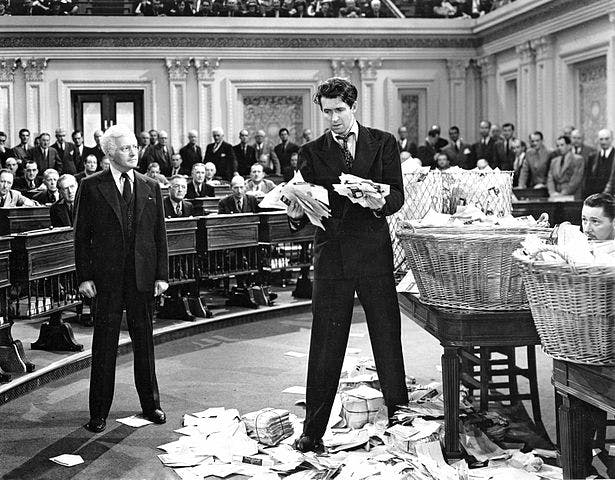November’s Election Could Decide the Fate of the Filibuster, a Failsafe for Limited Government
While the modern filibuster seems a high barrier to fast action, it is worth remembering that until 1917 there was no way to force a vote.

As some Senate Democrats fantasize about potentially weakening the filibuster if they can grow their majority in November, it may surprise people to learn that a former Speaker of the House strongly favors the delaying tactic.
Yes, the House operates with a simple majority and can pass a lot more legislation a lot faster than the Senate. Yes, it is frustrating to have a majority of Senators say they agree with a bill but that they don’t have enough votes to pass it.
Certainly, the modern, so-called soft filibuster, in which any member can simply say he or she is prepared to filibuster and then do nothing, is infuriating. Still, I support the filibuster — the real one.
Members who want to filibuster should have to go to the floor and speak for as long as they can — about the bill in question.
Major legislation should be hard to pass.
The Founding Fathers rebelled against a tyrannical government. Their major concern in writing the Constitution was to find a balance between a government strong enough to protect the American people from foreign aggression — but limited enough to not be able to impose its power on the American people.
In many ways, the Founding Fathers were writing a constitution to limit the government. The anti-Federalists feared that a new central government would lead America down the road to a new tyranny. They opposed the concept of the Constitution as written. In some states, they came close to defeating it.
The key turning point came when Thomas Jefferson insisted that the new Congress’ first order of business must be passing a Bill of Rights to further limit government and protect citizens. Mr. Jefferson himself believed that having two houses of the legislature was much safer and balanced than having only one house.
George Washington once told Mr. Jefferson, “We pour our legislation into the senatorial saucer to cool it,” as author Moncure Daniel Conway wrote in “Republican Superstitions” in 1872.
The Founding Fathers were not interested in fast legislation. They wanted wise and sound legislation. In fact, they feared mob rule and the passions of the crowd. They had studied Athenian democracy and were committed to avoiding its suicidal tendencies toward dictatorship and destruction.
To the Founding Fathers, the Roman system — a Republic with an assembly and a Senate — was much more stable and protective of the rights of citizens.
While the House was clearly the popular body, with direct election by the people from its beginning, the Senate was designed to be more distant and difficult to pressure through popular passions. The House is elected every two years, and every member is constantly at risk of losing.
Only one-third of the Senate is elected every two years. So, two-thirds of the Senators are insulated from the pressures of any one election year. Furthermore, for the first 120 years of America’s existence, the Senate was elected by state legislatures and not directly by popular vote.
The Senate was further isolated from public pressure and scrutiny in its first five years by meeting in secret and keeping no public records of votes.
While the modern filibuster seems a high barrier to fast action, it is worth remembering that until 1917 there was no way to force a vote. Aaron Burr, in a misguided attempt to streamline Senate rules, edited out the call to question, which still exists in the House. There was literally no mechanism by which a senator could call a vote if any other senator still had things to say.
The current mechanism to end debate and force a vote, or cloture, came about in 1917 and required a two-thirds majority of the Senate — 67 votes. Then, in 1975 the system was further weakened when the required number was reduced to 60 votes.
The idea was if a bill is not popular or necessary enough to get 60 senators to agree to bring it up, maybe it should not be rushed through.
The spirit of freedom, the principles of limited government power, and the importance of avoiding mob rule make me incredibly comfortable with our current structure.
Speed in the House, slow in the Senate, and the American people must support change to make it work.

